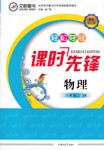题目内容
Welcome to Adventureland!
Everyone loves Adventureland! The Parks and Exhibitions were built for you to explore(探索), enjoy, and admire their wonders. Every visit will be an unforgettable experience. You will go away enriched, longing to come back. What are you going to do this time?
The Travel Pavillon
Explore places you have never been to before, and experience different ways of life.
Visit the Amazon jungle(丛林)village, the Turkish market, the Tai floating market, the Berber mountain house and others. Talk to the people there who will tell you about their lives, and things they make. You can try making a carpet, making nets, fishing…
The Future Tower
This exhibition shows how progress will touch our lives. It allows us to look into the future and explore the cities of the next century and the way we’ll be living then. Spend some time in our space station and climb into our simulator(模拟装置)for the Journey to Mars!
The Nature Park
This is not really one park but several.
In the Safari Park you can drive among African animals in one of our Range Cruisers: see lions, giraffes, elephants in the wild. Move on to the Ocean Park to watch the dolphins and whales. And then there is still the Aviary to see…
The Pyramid
This is the center of Adventureland. Run out of film, need some postcards and stamps? For all these things and many more, visit our underground shopping center. Come here for information and ideas too.
1.The Travel Pavilion is built to help visitors .
A.realize the importance of travelling
B.become familiar with mountain countries
C.learn how to make things such as fishing nets
D.learn something about different places in the world
2.If you are interested in knowing about what people’s life will be, you may visit .
A.the Travel Pavilion B.the Future Tower
C.the Safari Park D.the Pyramid
3.If you want to get a toy lion to take home, where will you most likely go?
A.The Pyramid. B.The Nature Park.
C.The Future Tower. D.The Travel Parvilion.
 文敬图书课时先锋系列答案
文敬图书课时先锋系列答案

